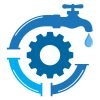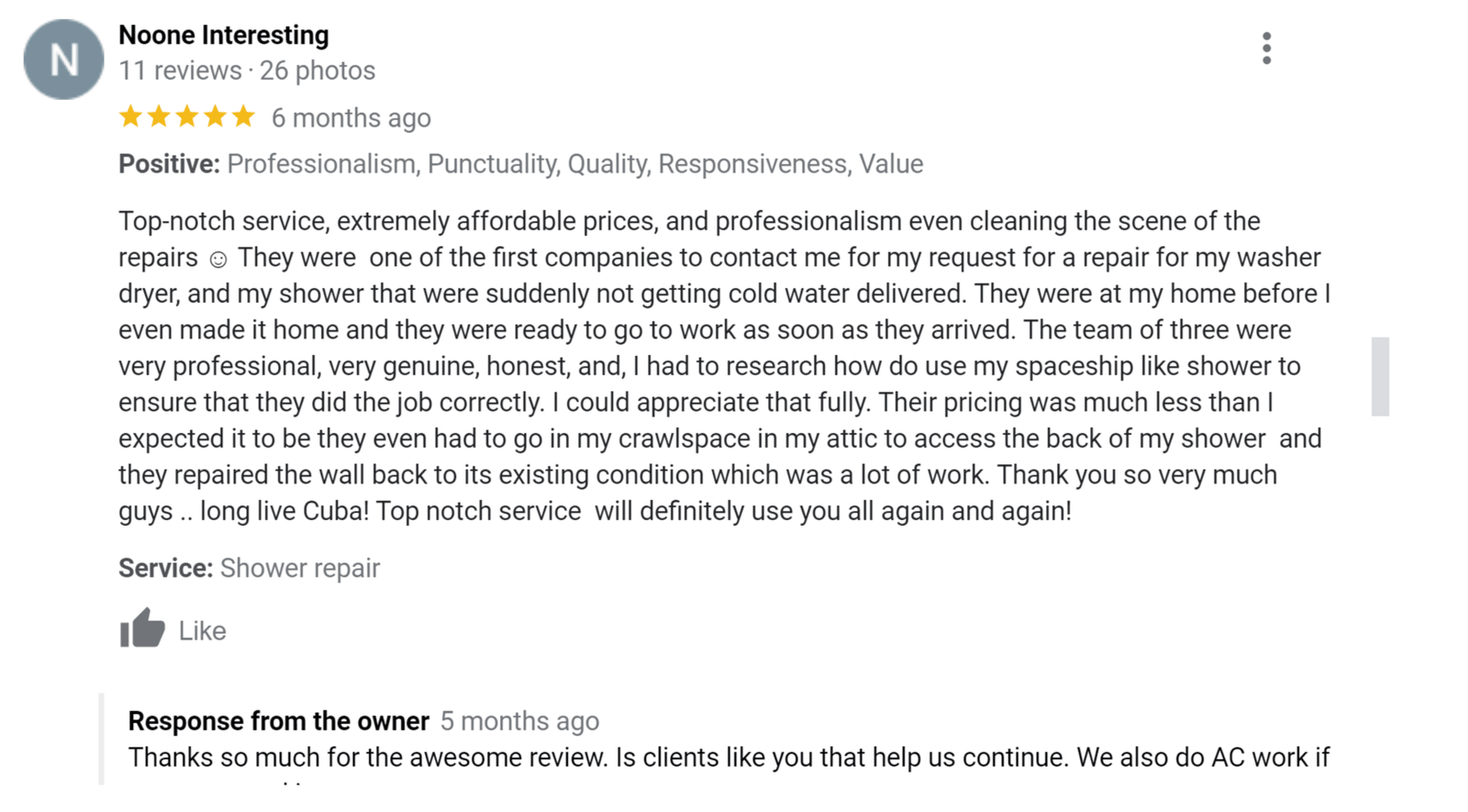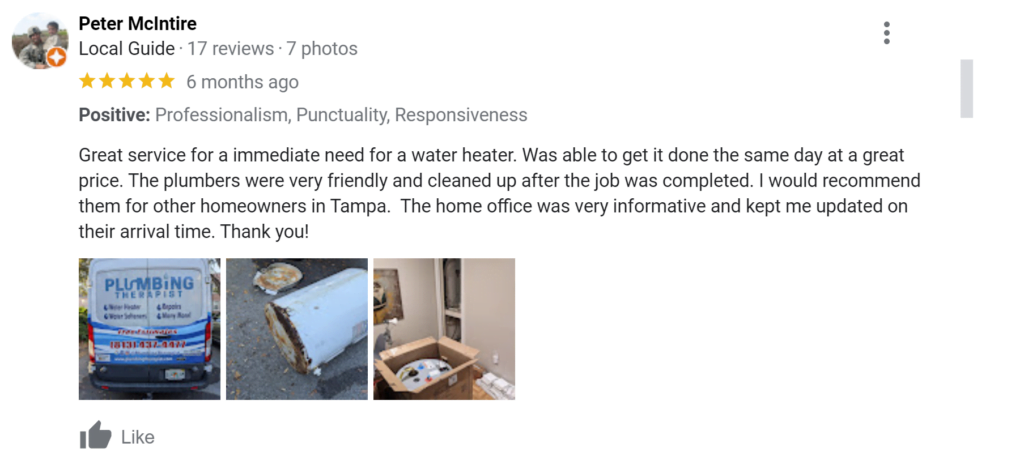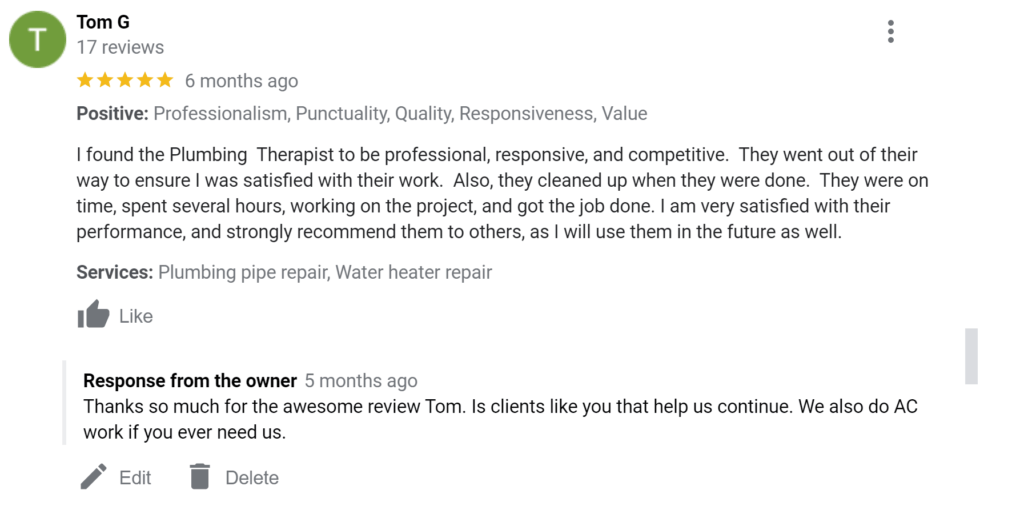Water Quality
Water quality refers to the chemical, physical, biological, and radiological characteristics of water. It indicates its suitability for various uses, like drinking, agriculture, industry, and ecosystem health. Plumbing Therapist provides expertise in maintaining optimal water quality in the Tampa Bay area.
Do You Need Our Help ?
Feel free to contact us now
$99 Water Heater Flush + Free Plumbing System Inspection

Water Quality in Tampa Bay
Elevating Water Quality with Plumbing Therapist in Hillsborough County, Pinellas County, and Pasco County
At Plumbing Therapist, we understand the critical importance of water quality for your health and comfort. Our specialized water quality services in the Tampa Bay area are designed to ensure you have access to clean, safe, and refreshing water. With years of experience, our team is well-equipped to address issues like contaminants, hardness, and pH imbalance.
Water quality is assessed based on a range of factors, which can include:
Chemical Composition: This includes the presence and concentration of various substances in the water, such as minerals, metals, organic compounds, and pollutants. Common measures include pH, dissolved oxygen, and the levels of contaminants like lead, arsenic, or pesticides.
Physical Properties: Physical characteristics of water, such as temperature, turbidity (clarity), and color, are important indicators of water quality. Temperature, for example, can affect the suitability of water for certain species of aquatic life.
Biological Factors: These factors assess the presence and abundance of microorganisms, algae, and aquatic organisms in water bodies. Biological indicators can provide insights into water pollution and ecosystem health.
Radiological Aspects: Some water quality assessments involve measuring the presence of radioactive substances, which can be harmful to both human health and the environment.
Why Choose Plumbing Therapist?
Choosing Plumbing Therapist is a decision that brings peace of mind and quality service to your doorstep. Our seasoned team of professionals in the Tampa Bay area possesses extensive experience and expertise in water quality solutions. With a proven track record, we have garnered the trust of the community as a reliable HVAC and plumbing contractor.
One compelling reason to choose us is our commitment to comprehensive services. Whether you need whole house water filtration, water softener installation, reverse osmosis installation, or water quality testing, we offer a one-stop solution. We understand that every home is unique, which is why we customize our services to your specific requirements. Our dedication to quality products and equipment ensures that the solutions we provide are not only effective but also built to last, safeguarding your investment.

Why partner with Plumbing Therapist?
Quality, Affordability, and Expertise.

No Hidden or Unexpected Charges

Free Estimates & Online Booking Available

Professionally Trained Technicians

Honesty is Guaranteed

Quick Communication & Service Within 24 Hours

400+ 5 Star Reviews

Unlocking the Benefits of Water Quality Services with Plumbing Therapist
Water quality services are essential for several important reasons:
Health: Poor water quality can contain contaminants like bacteria, lead, or chemicals that pose health risks when ingested. Ensuring your water is safe to drink and use for cooking is crucial for your family’s well-being.
Appliance Longevity: Hard water, high mineral content, and impurities can lead to scaling and damage in appliances like water heaters, dishwashers, and washing machines. Water quality services can help extend the lifespan of these valuable appliances.
Plumbing System Maintenance: Contaminants and minerals in water can accumulate in your plumbing system, leading to clogs and corrosion. Regular water quality maintenance can prevent costly plumbing repairs.
Better Taste and Odor: Clean, filtered water tastes better and lacks unpleasant odors, enhancing your overall water experience, from drinking to bathing.
Environmental Impact: Ensuring good water quality can also be an environmentally responsible choice. It reduces the need for bottled water and minimizes the use of chemicals to treat poor-quality water.
Property Value: Having a water quality system in place can increase the value of your home, as potential buyers often see it as a valuable feature.
Peace of Mind: Knowing that your water is free from contaminants and safe for consumption and daily use provides peace of mind for you and your family.
Water quality services are essential for your health, the longevity of your appliances, and the overall comfort and value of your home. Plumbing Therapist offers these services to ensure you have access to high-quality water in the Tampa Bay area, addressing these critical concerns.
If you would like more information, feel free to give them a call at (813)-437-4477 or you can book online and get their latest discount!
Customer Testimonials: Real Experiences with Plumbing Therapist
We proudly share the experiences and stories of our valued clients. Their feedback provides a glimpse into the quality of service and commitment to excellence we uphold at Plumbing Therapist. You'll read firsthand how our plumbing solutions have improved comfort and efficiency in homes across Tampa Bay. These testimonials illustrate our dedication to customer satisfaction and the difference our expert services can make.




Your questions answered
Common Water Quality Questions:
What is water quality and why does it matter?
Water quality refers to the chemical, physical, biological, and radiological characteristics of water. It encompasses various factors, including the presence of contaminants, pH levels, turbidity, temperature, and the concentration of minerals and chemicals in the water. The quality of water is crucial because it directly impacts its suitability for specific purposes, including human consumption, agriculture, industrial processes, and ecosystem health.
Here’s why water quality matters:
Human Health: Safe and clean drinking water is essential for human health. Poor water quality can contain contaminants like bacteria, lead, arsenic, or chemicals that, when consumed, can lead to health issues ranging from gastrointestinal problems to severe illnesses.
Environmental Impact: Water quality affects aquatic ecosystems, including rivers, lakes, and oceans. Contaminants in water can harm aquatic life, disrupt ecosystems, and lead to water pollution, which has far-reaching environmental consequences.
Agriculture: High-quality water is essential for crop irrigation. Poor water quality can affect crop yields and soil health, impacting food production and agricultural sustainability.
Industrial Processes: Many industries rely on water for various processes. Water with poor quality can damage equipment, reduce efficiency, and increase operational costs.
Plumbing and Appliances: Poor water quality can lead to scaling and corrosion in plumbing systems and appliances, reducing their lifespan and efficiency. This can result in costly repairs and replacements.
Economic Costs: Dealing with the consequences of poor water quality, such as healthcare expenses, environmental cleanup, and infrastructure maintenance, can impose significant economic burdens.
Quality of Life: Clean, safe water enhances the quality of life by ensuring access to safe drinking water, improved sanitation, and overall well-being.
Sustainability: Maintaining good water quality is essential for the sustainable use of water resources. It reduces the need for wasteful practices like bottled water consumption and excessive chemical treatments.
What are the signs of poor water quality?
Signs of poor water quality include unusual tastes or odors in the water, discoloration, visible particles of sediment, and stains on fixtures or clothing. Additionally, health symptoms like gastrointestinal issues after consuming water may also indicate poor water quality.
What are the advantages of regular water quality maintenance plans?
Regular water quality maintenance plans offer several advantages:
Consistent Performance: Maintenance plans ensure that your water quality system operates at peak performance throughout the year, providing you with clean and safe water consistently.
Preventive Care: Regular check-ups and maintenance can catch issues early, preventing costly repairs and extending the lifespan of your water quality equipment.
Health and Safety: Maintaining water quality systems helps ensure that your water remains safe for consumption, reducing the risk of contaminants entering your home.
Convenience: With scheduled maintenance visits, you don’t have to worry about remembering when to service your system; it’s taken care of for you.
Cost Savings: By addressing potential problems proactively, you can save money on emergency repairs or replacements that could result from neglected maintenance.
Peace of Mind: Knowing that your water quality system is well-maintained provides peace of mind, allowing you to trust the water you use for drinking, cooking, and bathing.
Efficiency: Well-maintained systems are more energy-efficient, potentially lowering your utility bills.
Longevity: Regular maintenance can extend the life of your water quality equipment, protecting your investment.
In summary, water quality maintenance plans offer a range of benefits, including consistent performance, preventive care, health and safety, convenience, cost savings, peace of mind, efficiency, and longevity of your water quality systems. They are a smart investment in ensuring the quality and reliability of your water supply.
How often should I replace water filters in my system?
The frequency of water filter replacement depends on the type of filter and your specific water quality. Generally, it’s recommended to replace standard sediment and carbon filters every 3 to 6 months. However, more specialized filters like reverse osmosis membranes may have longer lifespans, typically between 2 to 3 years. Regular maintenance and following manufacturer guidelines are essential for optimal filter performance.
Can you help with issues like lead or other contaminants in my water?
Absolutely, we can assist with issues related to lead or other contaminants in your water. Plumbing Therapist specializes in identifying and addressing water quality concerns. Our expert technicians can perform water quality tests to determine if lead or other contaminants are present in your water supply.
If contaminants like lead are detected, we have solutions to mitigate the issue. This may involve installing water treatment systems, such as whole house water filtration or specialized filters designed to remove specific contaminants. We can also provide guidance on safe water consumption practices and regular maintenance to ensure your water remains clean and safe.
Your health and the quality of your water are our top priorities. Please don’t hesitate to reach out to us for assistance with any water quality concerns, including issues related to lead or other contaminants.
What is a whole house water filtration system, and do I need one?
A whole house water filtration system is a comprehensive water treatment solution designed to filter and purify water as it enters your home. It is typically installed at the point where water enters your plumbing system, ensuring that all the water you use throughout your home is clean and safe.
Whether you need a whole house water filtration system depends on your specific water quality and concerns. Here are some scenarios where it might be beneficial:
Poor Water Quality: If your water has a strong odor, unusual taste, visible particles, or is discolored, a whole house filtration system can improve its quality.
Contaminants: If your water tests positive for contaminants like lead, arsenic, or chlorine, a whole house filtration system can effectively remove these substances.
Hard Water: Whole house water filtration systems can also include water softeners to combat hard water, which can cause scaling and damage to plumbing and appliances.
Health Concerns: If you have health concerns related to waterborne contaminants, such as bacteria or parasites, a whole house filtration system can provide peace of mind.
Appliance Protection: Filtration systems can extend the life of your appliances by preventing the buildup of mineral deposits and sediment.
Convenience: Having clean, filtered water available throughout your home is convenient for drinking, cooking, bathing, and cleaning.
Before deciding whether you need a whole house water filtration system, it’s advisable to have your water quality tested. A professional assessment can determine the specific issues with your water and guide you in choosing the most appropriate solution. Plumbing Therapist can provide both water quality testing and expert advice on whether a whole house filtration system is the right choice for your home.
Is my tap water safe to drink?
The safety of tap water can vary depending on your location and the quality of your municipal water supply. In many areas, tap water is regularly tested and treated to meet safety standards, making it safe to drink. However, there are instances where tap water may have issues, such as contaminants or old plumbing systems that affect water quality.
To determine if your tap water is safe to drink, you can take the following steps:
Check Water Quality Reports: Your local water utility should provide annual water quality reports to residents. These reports detail the levels of various contaminants in the water and whether they are within safe limits.
Water Testing: You can also have your tap water tested independently if you have concerns about its safety. Many laboratories offer water testing services that can identify specific contaminants.
Visible Indicators: Unusual tastes, odors, discoloration, or visible particles in your tap water could be indicators of poor water quality. If you notice any of these signs, it’s a good idea to have your water tested.
Ask Local Authorities: Contact your local water utility or health department if you have questions or concerns about your tap water’s safety. They can provide information and guidance.
If you’re unsure about the safety of your tap water, it’s a wise precaution to have it tested or invest in a water filtration system to ensure that the water you consume is clean and safe. Plumbing Therapist can assist with water quality testing and recommend suitable filtration solutions if needed to address any concerns.
What are the 4 types of water quality?
Water quality is typically assessed based on four main categories or types:
Physical Water Quality: This category evaluates the physical characteristics of water, including its appearance, temperature, turbidity (clarity), color, and odor. Physical water quality indicators help assess the immediate suitability of water for various uses.
Chemical Water Quality: Chemical water quality focuses on the presence and concentration of chemical substances in water. It includes measurements of pH (acidity or alkalinity), dissolved oxygen, nutrients (such as nitrogen and phosphorus), metals (like lead or copper), and pollutants (e.g., pesticides or industrial chemicals). Chemical water quality assessments are crucial for understanding water pollution and its potential impacts.
Biological Water Quality: Biological water quality examines the presence and abundance of living organisms in water, such as bacteria, algae, aquatic plants, and various aquatic species. Biological indicators can provide insights into the health of aquatic ecosystems and the potential presence of contaminants or pollutants.
Radiological Water Quality: Radiological water quality assesses the presence of radioactive substances in water. Radioactive contaminants can have harmful effects on both human health and the environment. Monitoring for radiological water quality is particularly important near nuclear facilities or areas with naturally occurring radioactive materials.
These four types of water quality assessments provide a comprehensive understanding of water suitability for various purposes, including drinking, agriculture, industry, and maintaining healthy aquatic ecosystems. Together, they help ensure the safe and sustainable use of water resources while protecting public health and the environment.
How can we improve water quality?
Improving water quality from a plumbing perspective involves measures taken within your home or building. Here are some plumbing-related ways to enhance water quality:
Install a Water Filtration System: Consider installing a whole house water filtration system or point-of-use filters to remove contaminants like sediment, chlorine, lead, and other impurities from your tap water. These systems can provide clean and safe water for drinking and daily use.
Maintain Plumbing Fixtures: Regularly inspect and maintain plumbing fixtures and pipes to prevent corrosion, leaks, and contamination. Address any issues promptly to avoid water quality problems.
Water Softening: Install a water softener if you have hard water, which can cause scaling and damage to plumbing fixtures and appliances. Water softeners remove minerals like calcium and magnesium, improving water quality and extending the lifespan of plumbing systems.
Regular Flushing: Periodically flush your water heater to remove sediment buildup. Sediment can affect the quality of hot water and reduce the efficiency of the heater.
Lead Pipe Replacement: If your home has lead pipes or plumbing fixtures containing lead, consider replacing them to eliminate the risk of lead contamination in your drinking water.
Cross-Connection Control: Ensure that there are no cross-connections between potable water and non-potable water sources. Backflow prevention devices can help prevent contamination.
Regular Maintenance: Enroll in plumbing maintenance plans offered by professional plumbing services. These plans include routine inspections and maintenance to ensure your plumbing system operates efficiently and delivers high-quality water.
Water Testing: Periodically test your water quality to identify any issues and ensure that treatment systems are functioning correctly. Professional water quality testing can detect contaminants and provide guidance on addressing them.
Hygiene and Cleaning: Practice good hygiene and cleanliness in plumbing fixtures and appliances, such as sinks, faucets, and water tanks, to prevent bacterial growth and contamination.
Avoid Chemical Contamination: Be cautious about the use of chemicals in and around plumbing fixtures. Improper disposal of chemicals can lead to contamination of water sources.
